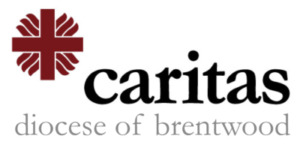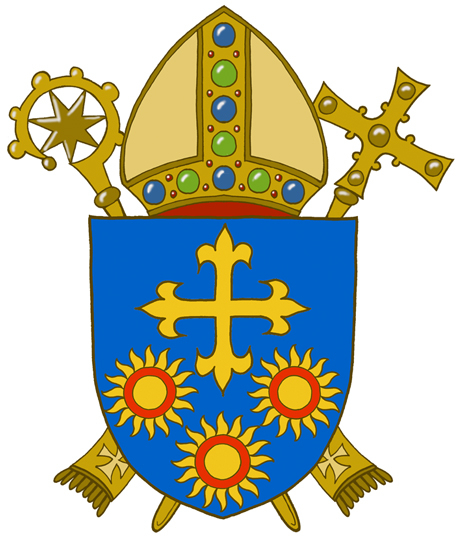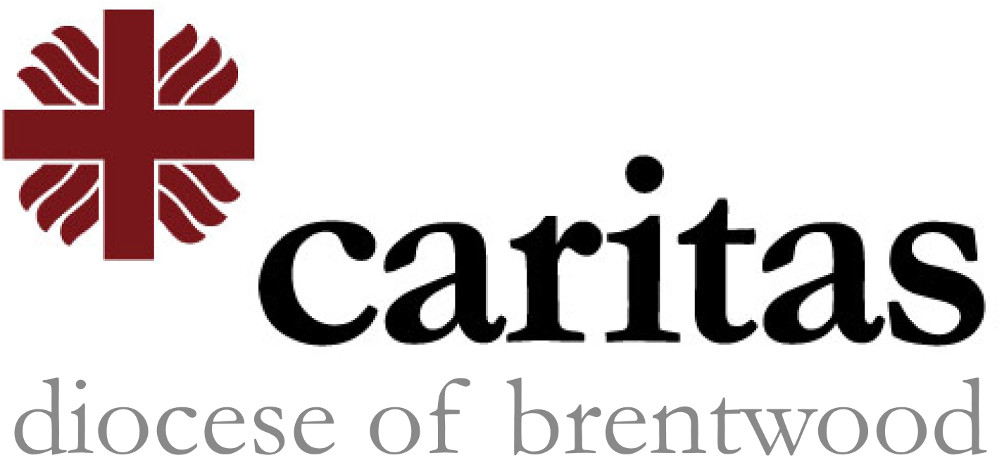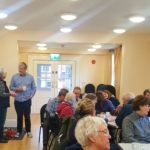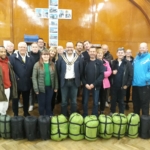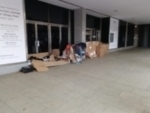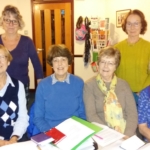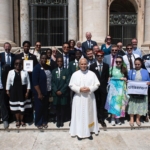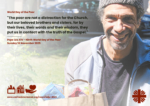Caritas Diocese of Brentwood came into being on the World Day of the Poor in 2018. We joined an ever growing list of the dioceses of England and Wales committed to forming a Caritas under the leadership of our Bishop. Now over half of our dioceses have a Caritas organisation dedicated to co-ordinating the various works of charitable service, ensuring professional competence and being a witness to a faith working through charity. We hope and pray that this will be one way that we can evangelise the world around us in Essex and East London.
Co-ordinating the various works of charitable service in our diocese is a very light touch exercise. There are a great many charitable works taking place at various levels. Some, like the formal charities set up with episcopal patronage hold a special place in our diocesan life. A light touch Caritas means supporting those organisations like Brentwood Catholic Children’s Society, fostering a greater sense of collective ownership of the tremendous work that it does for thousands of children and their families every year.
Other marvellous examples of charitable work being undertaken are done at a smaller local level by people of goodwill. A light touch Caritas means helping them to gain support and volunteers, networking them with other similar charitable works being undertaken by others so that they can learn from one another.
Light touch means helping those people of goodwill to attain the highest standards of care for those they assist while always fostering the spirit of love that exemplifies any caritas. A love nourished by an encounter with Christ.
Light touch means encouraging more and more people across our diocese to become directly engaged with the exercise of the ministry of charity. This might be through existing organisations like the St Vincent de Paul Society that do so much in our local parish communities, or ecumenically with food banks, or even a new organisation set up to meet a particular need. In recent years more and more people have come to need care and support and Caritas Diocese of Brentwood will try to help parishioners across East London and Essex to rise to the challenge.
The formation of Caritas Diocese of Brentwood happened in parallel with publication of our new diocesan vision document called “Shaping Our Future”. Caritas is an integral part of that vision. Some of our activities towards renewal take the form of prayer and worship, others proclamation by words and Caritas shows our faith in actions.
In a world that sometimes disparages religion and at others simply chooses to ignore it as irrelevant, we hope and pray that with the guidance of the Holy Spirit, we can give witness to our faith in a way that will not only help those in need but might also help to bring others to faith in Jesus Christ.
One of our aims is to match the energy of young people with the knowledge and experience of older people. We hope this will ensure that existing good works will continue beyond the lifetime of those currently involved and that they may develop into solutions well suited to the modern context. We hope that it will give rise to new expressions of charitable works and give those with protests against injustices a home to express them with love and respect. Furthermore, in an ever changing world, we hope that our young people will give those of us of more advanced years a fresh insight into the things that marginalise people in today’s society so that together we can find new ways to help them.
Our new website https://www.caritasbrentwood.org/ already lists over 60 charities, linking them with each other, potential volunteers, relevant information and our diocese. This will continue to build as new organisations join in. Also during our first year we were pleased to obtain accreditation for our diocese as a Living Wage employer.
Part of the work of every Caritas is to give practical meaning to Catholic Social Teaching. Human dignity and dignity at work are two key principles that are practically supported by the real living wage. Financial poverty in work is very real in our society. Time poverty follows when parents need to work multiple low paid jobs to maintain their family. In turn children often suffer when parents are time poor and problems born in childhood often carry through to adulthood. This in-work poverty can be alleviated by payment of the real living wage. The Living Wage Foundation’s work promoting the real living wage is gaining support across the country and the more organisations that support it the wider the effect on in-work poverty will be. We are pleased to be a part of this movement and to do our bit.
Steven Webb
Diocesan Director of Development
